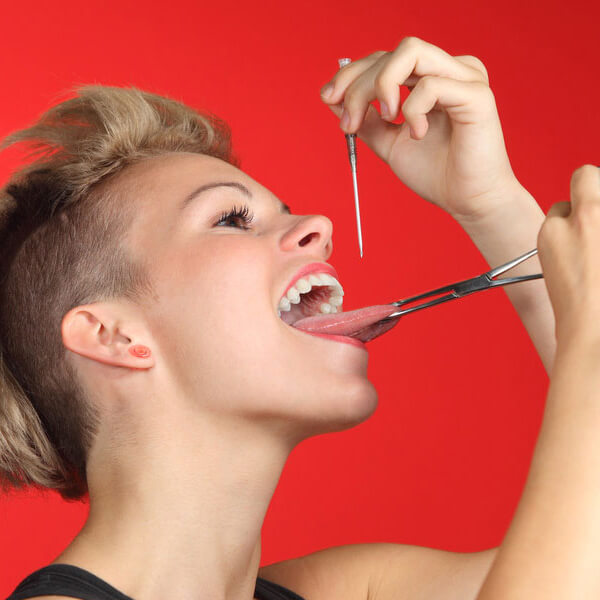After going through the small pain of having a piercing, the last thing you want is for the hole to close up or get infected.
Before you receive the piercing, you must make sure your piercer is using a needle, and not a gun. Needles are much more hygienic, safer to user, accurate and can sometimes be a lot less painful than a gun. Piercing with a gun can be especially dangerous with cartilage piercings as one wrong move could cause damage.
Know Your Piercing
Some piercings require more care than others. For example, a belly button piercing will take more time to heal than a lower lobe. Equally, a cartilage piercing is likely to take a lot longer and will need a lot more attention.
What’s Normal?
Initially, it is normal for your piercing to bleed, swell, go red, bruise or become tender. However, these symptoms should go away after a few days, especially if you’ve taken care of your piercing correctly. During the first stages of the healing process, the piercing hole may become itchy and tight and some discoloured fluid may seep out. With the right care, this should all go away after the piercing has healed.
Leave it Alone
It’s important to not fiddle with your piercing, especially in the early stages of the healing process. Do not remove the original piercing until the hole/piercing is healed completely.
Keep it Clean
The hole must be kept clean, so it’s best to try to keep your hair out of the way. Hair can harbour oils and dirt, which might infect the hole. Dirty fingers and clothing should also be prohibited from touching the area too.
It’s important to clean, but not overly wash the piercing hole. Over cleaning the hole may delay the healing process altogether and irritate the area. To clean your piercing there are lots of cleaning solutions that can be bought from piercing shops themselves, listen your your piercers advice. Be wary of soaps that aren’t fragrance free or have essential oils; some soaps could dry out the area and make it worse. Also, the cleaning solution you use should not contain alcohol.
Make sure you wash your hands thoroughly with warm water and antibacterial soap before cleaning your piercing and dry the area with a paper towel when you’re finished.
Patience and Sacrifice
You have to avoid stress, alcohol, caffeine and nicotine as these can all delay the healing process too. Most importantly, you must be patient as time is the greatest healer. Do not panic if you think your piercing is infected – a lot of the time it will just be irritated. You can return to your piercer to confirm how it’s getting along, but they will most likely assure you that your piercing just needs more time to heal.





